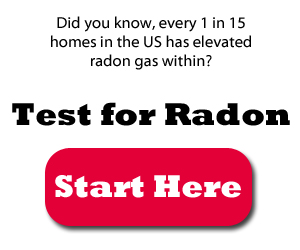Radon awareness is finally making the rounds, as more than a thousand council homes in the Scotland Highlands will soon be tested for radon – a deadly radioactive gas.
That particular region of Scotland has an incredibly high risk for the presence of the odorless, tastless and colorless radioactive gas known as radon. It seeps up from the soil, given off as a decay product of uranium. It is the second leading cause of lung cancer and has been linked to more than 1,000 deaths every year in the UK – nearly 200 or so of those deaths are Scots.
More Than 1,000 Highland Homes to Be Tested for Radon
Smokers are at an even greater risk for cancer if they have also been exposed to radon. The gas acts as kind of an accelerant for those exposed to both tobacco smoke and radon gas for an extended period of time.
Over the next few months, a net total of 1,150 council structures – including homes, schools and other buildings – will be tested for the presence of radon. Public Health England (PHE) will be conducted the entire operation, as per the Highland Council’s request.
Tenants in all of the following counties will receive letters about the tests, and informing residents what it means to them:
- Badenoch
- Strathspey
- Wester Ross
- Strathpeffer
- Lochalsh Wards
- Caol
- Mallaig
- Landward Caithness
- East Sutherland
- Edderton
- Dingwall
- Seaforth
- Aird
- Loch Ness
Why They Must Be Tested for Radon
As it turns out, certain geological conditions in the Highlands contribute to higher than average levels of radon gas being dispersed in the area. If it makes its way into a home – through cracks in the foundation, walls or flooring – then it will remain there contaminating the air supply.
If it makes its way into a resident’s lungs the particules will clingy to the flesh walls of the organ, decaying over time and resulting in lung cancer. Worse yet, lung cancer has a remarkably high mortality rate. By the time patients are diagnosed with lung cancer the disease has often progressed beyond a curable state, because symptoms don’t show until later stages. Radon poisoning and exposure will not cause any symptoms so there is virtually no way to tell you’ve been exposed unless you test your home. In fact, testing is the only way to discover radon’s presence at all.
Testing kits are not expensive at all. If you’re in the area and you’re interested in testing your home you can pick up one from the Health Protection Agency for £40.
Via: The Scotsman



